FREEMUSIC07
Main » Oldies
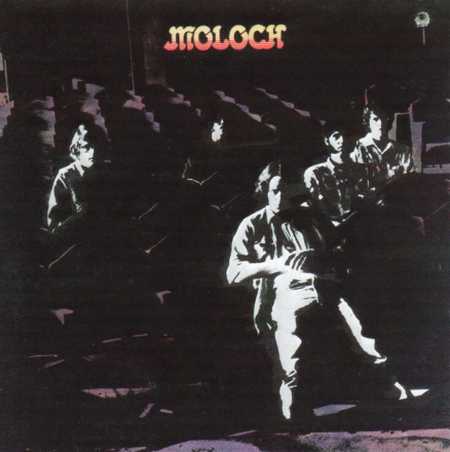 Hard/Blues Rock band formed in Memphis in 1968 by Baker, who'd fronted local faves The Blazers, the initial line-up evolved to include drummer Durham, who'd been with The Group and The Rapscallions. Produced, written and arranged by Don Nix (ex-Mar-Keys and Paris Pilot) in Memphis, Moloch is an excellent blues rock album with some sound effects, noises and superb acid guitar solos by Lee Baker. Their single was recorded after the album with a later line-up and is extremely rare. Lee Baker, guitar, vocals, Phillip Durham, drums, vocals, Fred Nicholson, organ, Steve Spear, bass and Gene Wilkins, lead vocals.01 - Helping Hand02 - Maverick Woman Blues03 - Outta Hand04 - Same Old Blues05 - Going Down06 - She Looks Like An Angel07 - Gone Too Long08 - Dance Chaney Dance09 - Mona10 - People Keep Talking11 - I Can Think The Same Of You12 - Night At The PossumLINK Hard/Blues Rock band formed in Memphis in 1968 by Baker, who'd fronted local faves The Blazers, the initial line-up evolved to include drummer Durham, who'd been with The Group and The Rapscallions. Produced, written and arranged by Don Nix (ex-Mar-Keys and Paris Pilot) in Memphis, Moloch is an excellent blues rock album with some sound effects, noises and superb acid guitar solos by Lee Baker. Their single was recorded after the album with a later line-up and is extremely rare. Lee Baker, guitar, vocals, Phillip Durham, drums, vocals, Fred Nicholson, organ, Steve Spear, bass and Gene Wilkins, lead vocals.01 - Helping Hand02 - Maverick Woman Blues03 - Outta Hand04 - Same Old Blues05 - Going Down06 - She Looks Like An Angel07 - Gone Too Long08 - Dance Chaney Dance09 - Mona10 - People Keep Talking11 - I Can Think The Same Of You12 - Night At The PossumLINK |
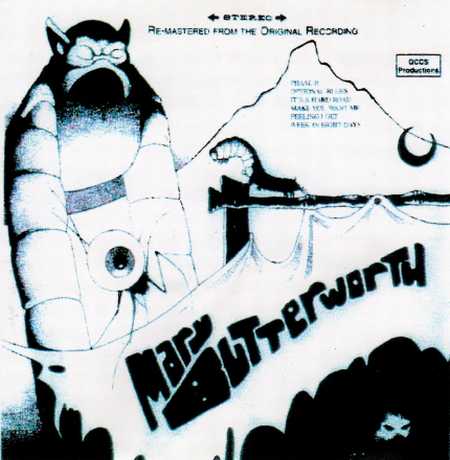 In the Spring of 1968 the Mary Butterworth band was formed. They enjoyed playing a variety of engagements around the Southern California area and in 1969, the recorded the one and only album entitled Mary Butterworth. This original, vinyl album was pre-sold to fans and friends only-- it was never available to the general public. Shortly thereafter, the group split up and never performed together again. "A fine progressive rock album which maintains a good standard throughout and features lots of good keyboards and drums. Phase II and Its a Hard Road are perhaps the pick of the bunch, but really every track's a winner. Recommended." Mike Ayling Brewer (Bass, Vocals, and Flute), Jim Giordano (Electric Guitar) Michael Hunt (Drums) and Mike Eachus (Hammond B-3).01 - Phase II02 - Optional Blues03 - It's A Hard Road04 - Make You Want Me05 - Feeling I Get06 - Week In Eight DaysLINK In the Spring of 1968 the Mary Butterworth band was formed. They enjoyed playing a variety of engagements around the Southern California area and in 1969, the recorded the one and only album entitled Mary Butterworth. This original, vinyl album was pre-sold to fans and friends only-- it was never available to the general public. Shortly thereafter, the group split up and never performed together again. "A fine progressive rock album which maintains a good standard throughout and features lots of good keyboards and drums. Phase II and Its a Hard Road are perhaps the pick of the bunch, but really every track's a winner. Recommended." Mike Ayling Brewer (Bass, Vocals, and Flute), Jim Giordano (Electric Guitar) Michael Hunt (Drums) and Mike Eachus (Hammond B-3).01 - Phase II02 - Optional Blues03 - It's A Hard Road04 - Make You Want Me05 - Feeling I Get06 - Week In Eight DaysLINK |
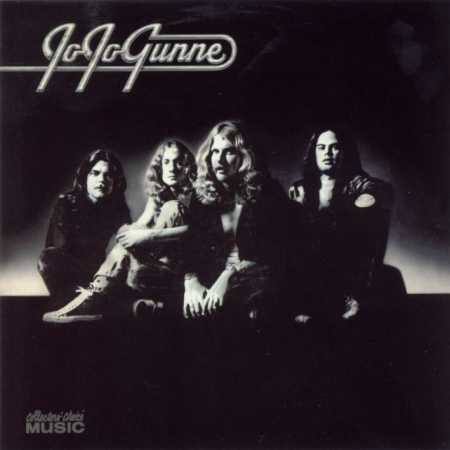 Jo Jo Gunne is a rock band, formed in Los Angeles, California, in 1971 by Jay Ferguson (keyboards, vocals and guitar) and Mark Andes (bass guitar and vocals) after they had left Spirit. With the addition of Andes' brother, Matt Andes (guitar, vocals) and William "Curly" Smith (drums, vocals and harp), they were signed to Asylum Records. Jo Jo Gunne had a Top 10 hit in the UK Singles Chart with the song, "Run Run Run", taken from their first album, Jo Jo Gunne (1972), which peaked at 27 in U.S. charts, and received airplay on U.S. album-oriented rock FM radio stations. The group did not maintain the commercial momentum of their first release. With Jumpin' the Gunne's tasteless album cover being blamed for drastically falling sales, they broke up in 1975. However they made several notable tracks, especially "Take It Easy", "Broken Down Man", "Neon City" and "Falling Angel". Bite Down Hard, from 1973, is the second release of the band.01 - Ready Freddy02 - Roll Over Me03 - 60 Minutes To Go04 - Rock Around The Symbol05 - Broken Down Man06 - Special Situations07 - Take Me Down Easy08 - Wait A Lifetime09 - RhodaLINK |
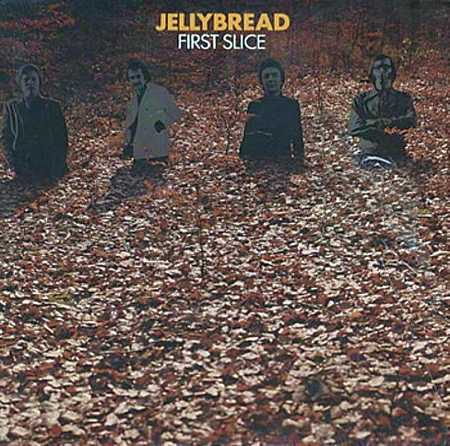 Formed at England’s Essex University by pianist Pete Wingfield, Jellybread was originally completed by Paul Butler (guitar/vocals) John Best (bass) and Chris Walters (drums). In 1969 the quartet secured a recording contract with the exemplary Blue Horizon Records label and although largely unadventurous, their albums offered a highly competent grasp of black music, including both blues and soul. They provided stellar accompaniment on Lightnin’ Slim’s London Gumbo and B.B. King In London, but the unit dissolved in 1971 with the departure of Wingfield and Waters. Newcomers Rick Birkett (guitar, ex-Accent) and Kenny Lamb (drums) joined for Back To Beginning Again, but Jellybread broke up when the set failed to make commercial headway. However, Wingfield enjoyed success as a solo artist, session pianist and member of Olympic.(PPM) Pete Wingfield ,Keyboards, Vocals, John Best, Bass, Chris Waters, Drums, Paul Butler, Guitar, Vocals.01 - River's Invitation02 - I Pity The Fool03 - Never Say No04 - Chairman Mao's Boongaloo05 - Evening06 - I've Got The Forgot You07 - Boogie Sandwich08 - Rusty Blade09 - No Brag Just Facts10 - No One Else11 - Don't Pay Them No MindLINK Formed at England’s Essex University by pianist Pete Wingfield, Jellybread was originally completed by Paul Butler (guitar/vocals) John Best (bass) and Chris Walters (drums). In 1969 the quartet secured a recording contract with the exemplary Blue Horizon Records label and although largely unadventurous, their albums offered a highly competent grasp of black music, including both blues and soul. They provided stellar accompaniment on Lightnin’ Slim’s London Gumbo and B.B. King In London, but the unit dissolved in 1971 with the departure of Wingfield and Waters. Newcomers Rick Birkett (guitar, ex-Accent) and Kenny Lamb (drums) joined for Back To Beginning Again, but Jellybread broke up when the set failed to make commercial headway. However, Wingfield enjoyed success as a solo artist, session pianist and member of Olympic.(PPM) Pete Wingfield ,Keyboards, Vocals, John Best, Bass, Chris Waters, Drums, Paul Butler, Guitar, Vocals.01 - River's Invitation02 - I Pity The Fool03 - Never Say No04 - Chairman Mao's Boongaloo05 - Evening06 - I've Got The Forgot You07 - Boogie Sandwich08 - Rusty Blade09 - No Brag Just Facts10 - No One Else11 - Don't Pay Them No MindLINK |
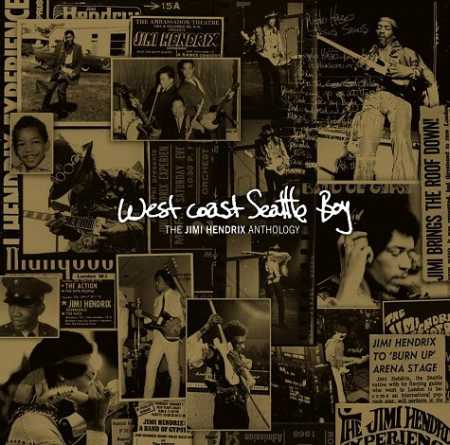
James Marshall "Jimi" Hendrix was an American guitarist and singer-songwriter. He is widely considered to be the greatest electric guitarist in the history of music, and one of the most influential musicians of his era across a range of genres. After initial success in Europe, he achieved fame in the United States following his 1967 performance at the Monterey Pop Festival. Later, Hendrix headlined the iconic 1969 Woodstock Festival and the 1970 Isle of Wight Festival. He often favored raw overdriven amplifiers with high gain and treble and helped develop the previously undesirable technique of guitar amplifier feedback. West Coast Seattle Boy: The Jimi Hendrix Anthology is a posthumous box set released in the United States and includes four discs of previously unreleased studio and live recordings. The box-set will also be available in a deluxe edition featuring 8 12" vinyl LPs. Disc one includes early performances of Hendrix as a session musician.Disc 101 - The Isley Brothers - Testify02 - Don Covay - Mercy, Mercy03 - Don Covay - Can't Stay Away04 - Rosa Lee Brooks - My Diary05 - Rosa Lee Brooks - Utee06 - Little Richard - I Don't Know What You Got But It's Got Me07 - Little Richard - Dancing All Around The World08 - Frank Howard & The Commanders - I'm So Glad09 - The Isley Brothers - Move Over And Dance10 - The Isley Brothers - Have You Ever Been Disappointed11 - Ray Sharpe - Help Me (Get The Feeling) Part One12 - The Icemen - (My Girl) She's A Fox13 - Jimmy Norman - That Little Old Groove Maker14 - Billy Lamont - Sweet Thang15 - King Curtis - Instant GrooveDisc 201 - Fire (1)02 - Are You Experienced (2)03 - May This Be Love (1)04 - Can You See Me (1)05 - The Wind Cries Mary (Live)06 - Love Or Confusion (1)07 - Little One (2)08 - Mr. Bad Luck (1)09 - Cat Talking To Me (1)10 - Castles Made Of Sand (2)11 - Tears Of Rage (2)12 - Hear My Train A Comin' (2)13 - 1983 (A Merman I Shall Turn To Be) (2)14 - Long Hot Summer Night (2)15 - My Friend (2)16 - Angel (2)17 - Calling All The Devil's Children (2)18 - New Rising Sun (1)Disc 301 - Hear My Freedom (2)02 - Room Full Of Mirrors (2)03 - Shame, Shame, Shame (2)04 - Messenger (2)05 - Hound Dog Blues (2)06 - Untitled Basic Track (2)07 - Star Spangled Banner (Live) (3)08 - Purple Haze (Live) (3)09 - Younghendrix (1)10 - Mastermind (2)11 - Message To Love (1)12 - Fire (Live) (2)13 - Foxey Lady (Live) (2)Disc 401 - Stone Free (Live) (2)02 - Burning Desire (2)03 - Lonely Avenue (2)04 - Everlasting First (1)05 - Freedom (2)06 - Peter Gunncatastrophe (1)07 - In From The Storm (1)08 - All God's Children (2)09 - Red House (Live) (2)10 - Play That Riff (2)11 - Bolero (1)12 - Hey Baby (New Rising Sun) (1)13 - Suddenly November Morning (2)(1) (Previously Unreleased Alternate Recording)(2) (Previously Unreleased Recording) (3) (Previously Unreleased Original Mix) LINK Part 1 LINK Part 2 |
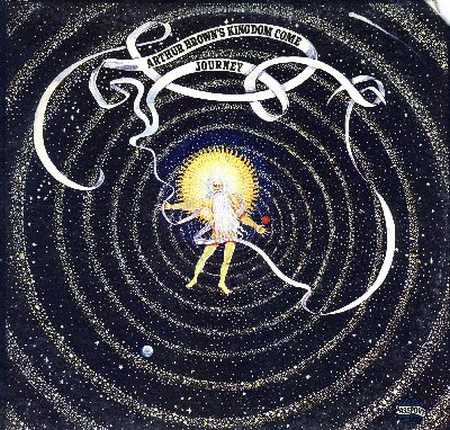 Kingdom Come were a British band of the 1970s, that played psychedelic, experimental progressive rock music. They were fronted by Arthur Brown, who gave them his theatrical style and voice. The combination ensured that the band was a hit on Britain's festival circuit, but lack of record sales, indifference from music critics, and poor record label promotion (especially in the US) led to its eventual demise in 1974. The band was later marketed as Arthur Brown's Kingdom Come in the United States due to name conflicts with an unrelated band with the same name. Kingdom Come were one of the first bands to use synthesizers, notably the VCS3, an early British synth used by Pink Floyd and Brian Eno among others at the time. The Mellotron also figured prominently in the group's repertoire, especially after the addition of Victor Peraino in the band's line-up. On the final album, Journey, recorded in November 1972, there was no drummer either on the record or on tour; all the drum sounds were from the Bentley Rhythm Ace, operated either by Victor Peraino or by Brown himself. Journey was the first album on which a drum machine produced all the percussion. Apart from Arthur Brown and guitarist Andy Dalby, the band included (at one time or another) Victor Peraino (keyboards), Julian Paul Brown (keyboards), Michael Harris (keyboards), Phil Shutt (bass), Desmond Fisher (bass), and Martin Steer (drums). "Ace Bentley," credited with drums on the final Kingdom Come album, was actually the Bentley Rhythm Ace, an early drum machine manufactured by the Ace Tone company of Japan (Ace Tone later evolved into the Roland Corporation).01 - Time Captives02 - Trinangles03 - Gypsy04 - Superficial Roadblocks05 - Conception06 - Spirit Of Joy07 - Come AliveLINK Kingdom Come were a British band of the 1970s, that played psychedelic, experimental progressive rock music. They were fronted by Arthur Brown, who gave them his theatrical style and voice. The combination ensured that the band was a hit on Britain's festival circuit, but lack of record sales, indifference from music critics, and poor record label promotion (especially in the US) led to its eventual demise in 1974. The band was later marketed as Arthur Brown's Kingdom Come in the United States due to name conflicts with an unrelated band with the same name. Kingdom Come were one of the first bands to use synthesizers, notably the VCS3, an early British synth used by Pink Floyd and Brian Eno among others at the time. The Mellotron also figured prominently in the group's repertoire, especially after the addition of Victor Peraino in the band's line-up. On the final album, Journey, recorded in November 1972, there was no drummer either on the record or on tour; all the drum sounds were from the Bentley Rhythm Ace, operated either by Victor Peraino or by Brown himself. Journey was the first album on which a drum machine produced all the percussion. Apart from Arthur Brown and guitarist Andy Dalby, the band included (at one time or another) Victor Peraino (keyboards), Julian Paul Brown (keyboards), Michael Harris (keyboards), Phil Shutt (bass), Desmond Fisher (bass), and Martin Steer (drums). "Ace Bentley," credited with drums on the final Kingdom Come album, was actually the Bentley Rhythm Ace, an early drum machine manufactured by the Ace Tone company of Japan (Ace Tone later evolved into the Roland Corporation).01 - Time Captives02 - Trinangles03 - Gypsy04 - Superficial Roadblocks05 - Conception06 - Spirit Of Joy07 - Come AliveLINK |
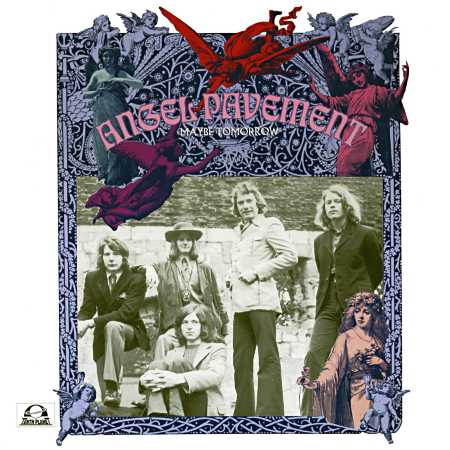 Anyone unfamiliar with Angel Pavement shouldn't feel too bad. After all, the band was hardly a household name in its heyday, and its peak of exposure consisted of a pair of failed singles at the very tail-end of the 1960s in England. But they were a seriously wonderful sunshine pop outfit from late 1960s, hailing from York, with a sound that was equal parts psychedelia and pop/rock in the best Hollies/Zombies/Beatles manner. The band, which took its name from a 1930 novel by J.B. Priestley (himself a Yorkshireman, natch), was assembled by guitarist/songwriter Alfie Shepherd out of the remnants of a soul-based outfit, Wesley Hardin's Shotgun Package, with Paul Smith (lead vocals), Dave Smith (guitar), Graham Harris (bass), and Alan Reeve (drums) (later replaced by Mike "Candy" Candler). They quickly developed an effective pop-oriented psychedelic sound, similar to what the Hollies were doing on Evolution and Butterfly, and the Zombies generated on Odessey & Oracle, with lush harmonies, glittering instrumental textures, horns and brass in the right places on the pop numbers. They managed to build a large following in their native York and also cut some early sides that heavily reflected all of those influences. The group's attempt to crack the London club scene coincided with their starting work on a debut album at Morgan Studios, but those efforts were interrupted by an offer to play a series of gigs for a few days in Mexico City in early 1969. Instead, they stayed for five months, and returned to London to pick up work on the album, a process interrupted by Dave Smith's departure (and his replacement by John Cartwright, who played guitar and trumpet). A pair of singles, "Baby You've Gotta Stay" and "Tell Me What I've Got to Do," issued through Fontana Records, failed to elicit any serious chart action in late 1969 and early 1970; a third single and their announcement of a forthcoming LP all ended up missing in action because of disputes between Shepherd and the studio's publishing arm. Their producer apparently put the final nail in the coffin, and they broke up at the end of 1970.(Ans)01 - The Man In The Shop On The Corner02 - Maybe Tomorrow03 - The Time Is Upon Us04 - Green Mello Hill05 - Little Old Man06 - When Will I See June Again07 - Genevieve08 - Water Woman09 - Napoleon10 - Socialising11 - Jennifer12 - Carrie13 - I'm A Dreamer14 - Baby You've Gotta Stay15 - I'm Moving OnLINK Anyone unfamiliar with Angel Pavement shouldn't feel too bad. After all, the band was hardly a household name in its heyday, and its peak of exposure consisted of a pair of failed singles at the very tail-end of the 1960s in England. But they were a seriously wonderful sunshine pop outfit from late 1960s, hailing from York, with a sound that was equal parts psychedelia and pop/rock in the best Hollies/Zombies/Beatles manner. The band, which took its name from a 1930 novel by J.B. Priestley (himself a Yorkshireman, natch), was assembled by guitarist/songwriter Alfie Shepherd out of the remnants of a soul-based outfit, Wesley Hardin's Shotgun Package, with Paul Smith (lead vocals), Dave Smith (guitar), Graham Harris (bass), and Alan Reeve (drums) (later replaced by Mike "Candy" Candler). They quickly developed an effective pop-oriented psychedelic sound, similar to what the Hollies were doing on Evolution and Butterfly, and the Zombies generated on Odessey & Oracle, with lush harmonies, glittering instrumental textures, horns and brass in the right places on the pop numbers. They managed to build a large following in their native York and also cut some early sides that heavily reflected all of those influences. The group's attempt to crack the London club scene coincided with their starting work on a debut album at Morgan Studios, but those efforts were interrupted by an offer to play a series of gigs for a few days in Mexico City in early 1969. Instead, they stayed for five months, and returned to London to pick up work on the album, a process interrupted by Dave Smith's departure (and his replacement by John Cartwright, who played guitar and trumpet). A pair of singles, "Baby You've Gotta Stay" and "Tell Me What I've Got to Do," issued through Fontana Records, failed to elicit any serious chart action in late 1969 and early 1970; a third single and their announcement of a forthcoming LP all ended up missing in action because of disputes between Shepherd and the studio's publishing arm. Their producer apparently put the final nail in the coffin, and they broke up at the end of 1970.(Ans)01 - The Man In The Shop On The Corner02 - Maybe Tomorrow03 - The Time Is Upon Us04 - Green Mello Hill05 - Little Old Man06 - When Will I See June Again07 - Genevieve08 - Water Woman09 - Napoleon10 - Socialising11 - Jennifer12 - Carrie13 - I'm A Dreamer14 - Baby You've Gotta Stay15 - I'm Moving OnLINK |
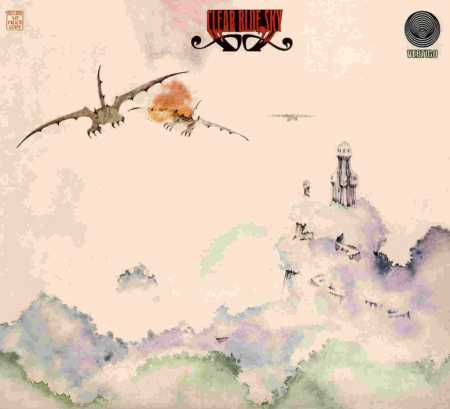 Considered a classic of the early seventies by a number of critics, the debut album from Clear Blue Sky was released at a time when the rock world was undergoing a number of radical changes. The psychedelic era was coming to a close with progressive rock taking over the mantle of rocks' leading genre. However, not all bands followed the modus operandi of progressive rock bands, using classical music and jazz music as the platform for their musical trip. Some bands, most notably those within the hard rock genre, used a form of heavy blues as their launching pad. Clear Blue Sky were just one of these bands that have a most definite blues influence. However, their ability to introduce a number of variations within their musical structure such as subtle classical influences as well as a degree of complexity that went beyond the average band enabled their music to be appreciated by a wider range of audiences. The album starts with the suite, Journey To the Inside Of The Sun which occupied the whole of Side 1 of the original vinyl album, and is in itself subdivided into three tracks. The band was a three piece from Acton, who were only 18 years old when the album was issued in 1970. John Simms - guitars, vocals; Ken White - drums; Mark Sheather – bass.Journey To The Inside Of The Sun01 - (a) Sweet Leaf02 - (b) The Rocket Ride03 - (c) I'm Coming Home04 - You Mystify05 - Tool Of My Trade06 - My Heaven07 - BirdcatcherLINK Considered a classic of the early seventies by a number of critics, the debut album from Clear Blue Sky was released at a time when the rock world was undergoing a number of radical changes. The psychedelic era was coming to a close with progressive rock taking over the mantle of rocks' leading genre. However, not all bands followed the modus operandi of progressive rock bands, using classical music and jazz music as the platform for their musical trip. Some bands, most notably those within the hard rock genre, used a form of heavy blues as their launching pad. Clear Blue Sky were just one of these bands that have a most definite blues influence. However, their ability to introduce a number of variations within their musical structure such as subtle classical influences as well as a degree of complexity that went beyond the average band enabled their music to be appreciated by a wider range of audiences. The album starts with the suite, Journey To the Inside Of The Sun which occupied the whole of Side 1 of the original vinyl album, and is in itself subdivided into three tracks. The band was a three piece from Acton, who were only 18 years old when the album was issued in 1970. John Simms - guitars, vocals; Ken White - drums; Mark Sheather – bass.Journey To The Inside Of The Sun01 - (a) Sweet Leaf02 - (b) The Rocket Ride03 - (c) I'm Coming Home04 - You Mystify05 - Tool Of My Trade06 - My Heaven07 - BirdcatcherLINK |
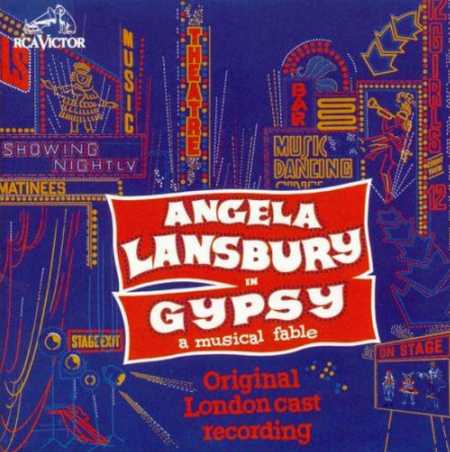 Gypsy is a musical with music by Jule Styne, lyrics by Stephen Sondheim, and a book by Arthur Laurents. Gypsy is loosely based on the 1957 memoirs of Gypsy Rose Lee, the famous striptease artist, and focuses on her mother, Rose, whose name has become synonymous with "the ultimate show business mother." It follows the dreams and efforts of Rose to raise two daughters to perform onstage and casts an affectionate eye on the hardships of show business life. The character of Louise is based on Lee, and the character of June is based on Lee's sister, the actress June Havoc. The musical contains many songs that became popular standards, including "Small World," "Everything's Coming up Roses", "You'll Never Get Away from Me," and "Let Me Entertain You." It is frequently considered one of the crowning achievements of the mid-20th century's conventional musical theatre art form, often called the "book musical". Gypsy has been referred to as the greatest American musical by numerous critics and writers, among them Ben Brantley and Frank Rich. Rich even calls it the American musical theatre's answer to King Lear. Theater critic Clive Barnes wrote that "Gypsy is one of the best of musicals..." and described the character of Rose as "one of the few truly complex characters in the American musical....". The original Broadway production opened on May 21, 1959 at The Broadway Theatre and subsequently transferred to the Imperial Theatre, running for 702 performances after two previews. In 1973, it was announced that Elaine Stritch would be starring in the first London production of the show. However, when ticket sales proved to be unsuccessful, producers hired the more familiar Angela Lansbury. (According to Craig Zadan, "The ...producers were not able to raise the required capital on Stritch's name, and the promise of a new production...became ominously distant." The London production opened at the Piccadilly Theatre in the West End on May 29, 1973 and closed on March 2, 1974 after 300 performances. It was produced by Edgar Lansbury (Angela's brother) and directed by the show's author, Arthur Laurents with choreography reproduced by Robert Tucker. The supporting cast featured Zan Charisse, Barry Ingham, Debbie Bowen and Bonnie Langford. On September 23, 1974, Lansbury's West End production transferred to Broadway's Winter Garden Theatre for a planned limited run of 120 performances after four previews. The cast remained mostly the same in New York, except that Rex Robbins played Herbie, Maureen Moore (later Bernadette Peters' understudy as Rose in the 2003 revival) played the adult June, and Mary Louise Wilson was Tessie Tura. Angela Lansbury, having reprised her role as Rose, won the 1975 Tony Award.01 - Overture02 - Some People03 - Small World04 - Let Me Entertain You (Montage)05 - Mr. Goldstone06 - Little Lamb07 - You'll Never Get Away From Me08 - If Monna Was Married09 - All I Need Is The Girl10 - Everything's Coming Up Roses11 - Together12 - You Gotta Get A Gimmick13 - Let Me Entertain You14 - Rose's TurnLINK Gypsy is a musical with music by Jule Styne, lyrics by Stephen Sondheim, and a book by Arthur Laurents. Gypsy is loosely based on the 1957 memoirs of Gypsy Rose Lee, the famous striptease artist, and focuses on her mother, Rose, whose name has become synonymous with "the ultimate show business mother." It follows the dreams and efforts of Rose to raise two daughters to perform onstage and casts an affectionate eye on the hardships of show business life. The character of Louise is based on Lee, and the character of June is based on Lee's sister, the actress June Havoc. The musical contains many songs that became popular standards, including "Small World," "Everything's Coming up Roses", "You'll Never Get Away from Me," and "Let Me Entertain You." It is frequently considered one of the crowning achievements of the mid-20th century's conventional musical theatre art form, often called the "book musical". Gypsy has been referred to as the greatest American musical by numerous critics and writers, among them Ben Brantley and Frank Rich. Rich even calls it the American musical theatre's answer to King Lear. Theater critic Clive Barnes wrote that "Gypsy is one of the best of musicals..." and described the character of Rose as "one of the few truly complex characters in the American musical....". The original Broadway production opened on May 21, 1959 at The Broadway Theatre and subsequently transferred to the Imperial Theatre, running for 702 performances after two previews. In 1973, it was announced that Elaine Stritch would be starring in the first London production of the show. However, when ticket sales proved to be unsuccessful, producers hired the more familiar Angela Lansbury. (According to Craig Zadan, "The ...producers were not able to raise the required capital on Stritch's name, and the promise of a new production...became ominously distant." The London production opened at the Piccadilly Theatre in the West End on May 29, 1973 and closed on March 2, 1974 after 300 performances. It was produced by Edgar Lansbury (Angela's brother) and directed by the show's author, Arthur Laurents with choreography reproduced by Robert Tucker. The supporting cast featured Zan Charisse, Barry Ingham, Debbie Bowen and Bonnie Langford. On September 23, 1974, Lansbury's West End production transferred to Broadway's Winter Garden Theatre for a planned limited run of 120 performances after four previews. The cast remained mostly the same in New York, except that Rex Robbins played Herbie, Maureen Moore (later Bernadette Peters' understudy as Rose in the 2003 revival) played the adult June, and Mary Louise Wilson was Tessie Tura. Angela Lansbury, having reprised her role as Rose, won the 1975 Tony Award.01 - Overture02 - Some People03 - Small World04 - Let Me Entertain You (Montage)05 - Mr. Goldstone06 - Little Lamb07 - You'll Never Get Away From Me08 - If Monna Was Married09 - All I Need Is The Girl10 - Everything's Coming Up Roses11 - Together12 - You Gotta Get A Gimmick13 - Let Me Entertain You14 - Rose's TurnLINK |
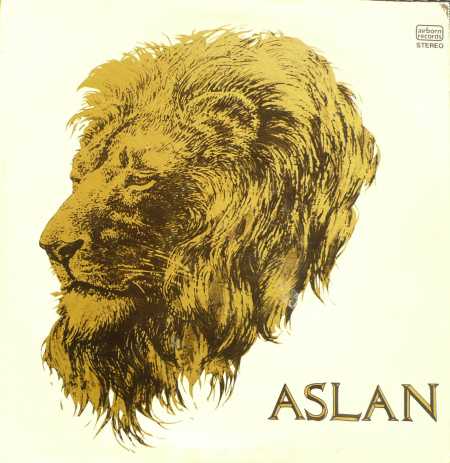 Christian Classic Rock/Rural Rock/Folk Rock band. Homespun rural lazy-Sunday-afternoon Georgia folkrock outfit featuring Scott Roley. A light basement feel pervades side 1 with piano out in front and twangy electric guitar. Side 2 is quieter, mostly heartfelt acoustic ballads. Gentle male/female harmonies throughout. Nice use of harpsichord on 'Sonshine'. 'Further Up And Further In' would resurface on Albrecht & Roley as well as the first Albrecht, Roley, & Moore lp. Assisted and engineered by Ron Moore. (Ken Scott)01 - Glory Day02 - His Way03 - Minnesota04 - Time To Move05 - On My Way06 - Ted's Song07 - Further Up And Further In08 - Sonshine09 - Marriage Of The Lamb10 - Celebrate LoveLINK Christian Classic Rock/Rural Rock/Folk Rock band. Homespun rural lazy-Sunday-afternoon Georgia folkrock outfit featuring Scott Roley. A light basement feel pervades side 1 with piano out in front and twangy electric guitar. Side 2 is quieter, mostly heartfelt acoustic ballads. Gentle male/female harmonies throughout. Nice use of harpsichord on 'Sonshine'. 'Further Up And Further In' would resurface on Albrecht & Roley as well as the first Albrecht, Roley, & Moore lp. Assisted and engineered by Ron Moore. (Ken Scott)01 - Glory Day02 - His Way03 - Minnesota04 - Time To Move05 - On My Way06 - Ted's Song07 - Further Up And Further In08 - Sonshine09 - Marriage Of The Lamb10 - Celebrate LoveLINK |
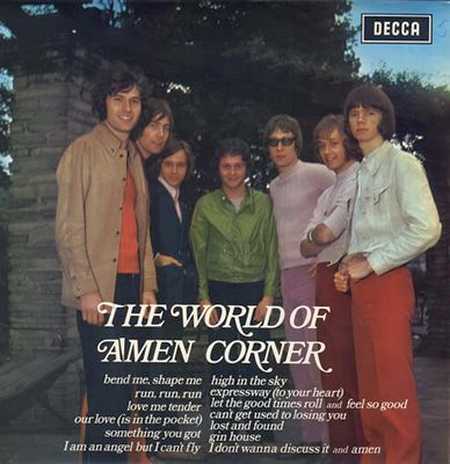
Amen Corner was a successful British rock group, formed in late 1966 in Cardiff, Wales. The band was named after The Amen Corner, a weekly disc spin at the Victoria Ballroom (later to become The Scene Club) in Cardiff, Wales, where every Sunday night Dr. Rock would play the best soul music from the United States. Initially they specialised in a blues and jazz-orientated style, but were steered by their record labels into more commercial pastures. Their first singles and album appeared on Decca's subsidiary label Deram, but they left at the end of 1968 to join Immediate, where they were instantly rewarded with a No. 1, "(If Paradise Is) Half as Nice" in early 1969, followed by another Top 5 entry with the Roy Wood composition, "Hello Susie". Andy Fairweather Low (vocals), Neil Jones (guitar) ,Allan Jones (saxophone), Blue Weaver (keyboards), Mike Smith (tenor saxophone), Clive Taylor (bass) and Dennis Bryon (drums). 01 - Bend Me, Shape Me02 - Run Run Run03 - Love Me Tender04 - Our Love Is In The Pocket05 - Something You Got06 - I Am An Angel But I Can't Fly07 - High In The Sky08 - Expressway To Your Heart09 - Let The Good Times Roll - Feel So Good10 - Can't Get Used To Losing You11 - Lost And Found12 - Gin House Blues13 - I Don't Wanna Discuss It - AmenLINK |
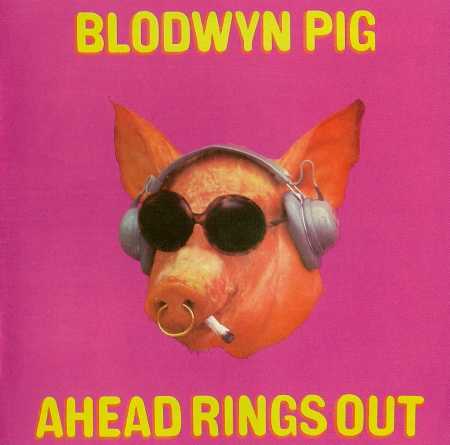 Blodwyn Pig were a British blues–rock group founded by guitarist–vocalist–songwriter Mick Abrahams, after he left Jethro Tull in 1968 due to a falling-out with Tull leader Ian Anderson. Abrahams' falling-out with Anderson was said to have originated in differences between the two on original material —Abrahams wishing to stay close to Jethro Tull's blues and jazz roots, Anderson wishing to develop less overt blues and jazz material— and Abrahams' unwillingness to work seven days a week. He left Jethro Tull after their debut album, This Was, was released, and formed Blodwyn Pig with Jack Lancaster (saxophone), Andy Pyle (bass guitar), and Ron Berg (drums); future Yes and Flash guitarist Peter Banks became one of several guitarists to succeed Abrahams after he left to form his own band for a time. Ahead Rings Out was the debut album by Blodwyn Pig, released in 1969, and sales of Ahead Rings Out rivalled those of Jethro Tull's next album, Stand Up, reaching No. 9 on the British album chart. The album contained a healthy mixture of various styles of progressive blues and "The Modern Alchemist" displayed the jazz influence and saxophone skills of Jack Lancaster. In liner notes for the 2001 re-issue of the album, songwriter and singer Mick Abrahams recalled: "The producer was Andy Johns (little brother to Glyn Johns of Rolling Stones production fame). I think the tape operator was Robin Black, who later went on to produce Jethro Tull and other notable acts of the time.01 - It's Only Love02 - Dear Jill03 - Sing Me A Song That I Know04 - The Modern Alchemist05 - Up And Coming06 - Leave It With Me07 - The Change Song08 - See My Way09 - Ain't Ya Comin' Home, Babe10 - Sweet Caroline11 - Walk On The Water12 - Summer Day13 - Same Old Story14 - Slow Down15 - Meanie Mornay16 - BackwashLINK |
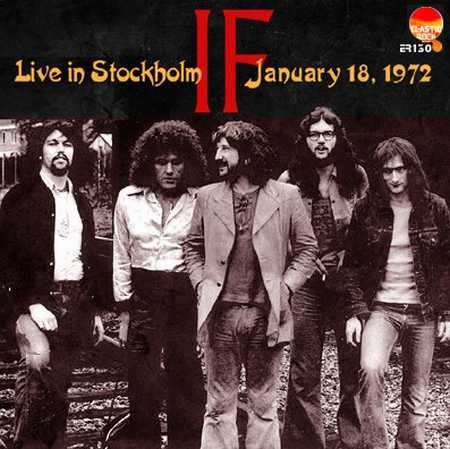 If the United States had jazz-rock outfits such as Chicago and Blood, Sweat And Tears, then the United Kingdom had the seminal If. The members of this late '60s group were Terry Smith (guitar), John Mealing (keyboards), JW Hodkinson (vocals), Jim Richardson (bass), Dick Morrissey (flute and saxes), Dave Quincy (saxes) and Dennis Elliot (drums). They probably were the only jazz-rock group, both then and now, to feature solos by all the band members, not just by the lead instruments. But then playing jazz-rock had its own problems - they were considered too jazzy when billed with groups with a more rock orientation and too bluesy or loud when billed with more jazz-oriented bands. Thanks to golfspel who shared the lossless tracks on the internet, fans can now enjoy the tight interplay between jazz and rock, aided in no small part by Hodkinson's strong vocals, on this If show recorded for Swedish radio. John Mealing would later join The Strawbs while Dennis Elliot would be a part of the hugely-successful Foreigner. But in the late '60s and early '70s, If were definitely a jazz-rock group to be reckoned with.01 - Child Of Storm02 - Reaching Out On All Sides03 - Your City Is Falling04 - Seldom Seen Sam05 - Fibonacci's Number06 - Forgotten RoadsLINK |
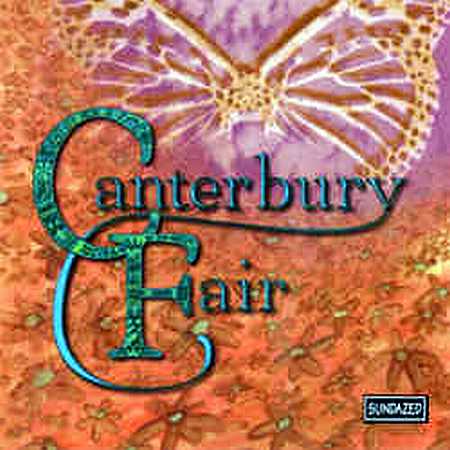 The Canterbury Fair was a band from Fresno California that recorded between 1967 to 1969. The band, led by John and Philip Hollingsworth, skillfully employed keyboards and a fuzz bass to create a monstrous epic sound of swirling tapestries of mind-bending music that was way ahead of its time. Canterbury Fair created a sound the was reminiscent of the Doors but contained elements of the Left Banke and Love. The unique thing about this band is that no one played guitar in the band, the entire sound was based around the organ as the lead instrument together with drums bass and vocals. This collection of 10 songs includes the A-side of the ultra-rare single, "Song On A May Morning" originally released on the small local Koala label as well as the group's never-before-heard full-length album that was recorded but never released and one live track recorded during the band's hey day.01 - Talk Song02 - A Song On A May Morning03 - Acid04 - Bad For Anyone05 - Russian Opera06 - Long Brown Hair07 - Winds Of The Sky08 - A Spanish Serenade09 - Sally Rover10 - The Man, LiveLINK |
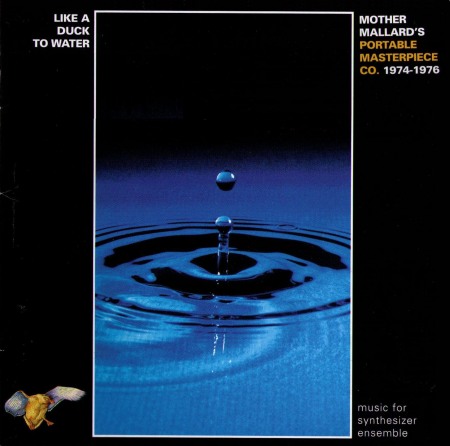 Mother Mallard’s Portable Masterpiece Company, formed in 1969 in Ithaca, NY, by David Borden, was the world’s first synthesizer ensemble, predating groups like Tonto’s Expanding Head Band and Tangerine Dream. David Borden was in close contact with Dr. Robert Moog and was one of the first musicians to use his Minimoog. After recruiting Steve Drews and Linda Fisher to operate additional synthesizers, the group began playing concerts of minimalist music by Terry Riley, Steve Reich, and Philip Glass. They began recording their first self-titled album in 1970, but it would not be released until 1973 by Earthquack Records. Their second album, Like a Duck to Water, was released in 1976.01 - Oleo Strut02 - All Set03 - Theme From After The Fall04 - Waterwheel05 - C-A-G-E [Part 2]06 - Downtown07 - Harpsichord TruckLINK Mother Mallard’s Portable Masterpiece Company, formed in 1969 in Ithaca, NY, by David Borden, was the world’s first synthesizer ensemble, predating groups like Tonto’s Expanding Head Band and Tangerine Dream. David Borden was in close contact with Dr. Robert Moog and was one of the first musicians to use his Minimoog. After recruiting Steve Drews and Linda Fisher to operate additional synthesizers, the group began playing concerts of minimalist music by Terry Riley, Steve Reich, and Philip Glass. They began recording their first self-titled album in 1970, but it would not be released until 1973 by Earthquack Records. Their second album, Like a Duck to Water, was released in 1976.01 - Oleo Strut02 - All Set03 - Theme From After The Fall04 - Waterwheel05 - C-A-G-E [Part 2]06 - Downtown07 - Harpsichord TruckLINK |
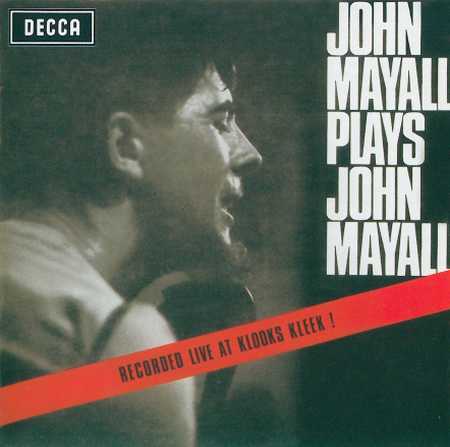 John Mayall & the Bluesbreakers were a pioneering English blues band, led by singer, songwriter, and multi-instrumentalist John Mayall, OBE. Mayall used the band name between 1963 and 1967, but then dropped it for some fifteen years. However, in 1982 a 'Return of the Bluesbreakers' was announced and the name has been kept since then. The name has become generic without a clear distinction which recordings are to be credited just to the leader or to leader and his band. Plays John Mayall, was recorded live at Klook's Kleek, The Railway Hotel, West Hampstead, London on Monday 7th December 1964, released by Decca in 1965. Bonus tracks (13-17), recorded 1964-65 at Decca Studios. John Mayall, vocals, harmonica, cemballet, organ, 9 string guitar, Roger Dean, guitar, John McVie, bass, Hugie Flint, drums and Nigel Stanger tenor and slide saxophone.01 - Crawling Up A Hill02 - I Wanna Teach You Everything03 - When I'm Gone04 - I Need Your Love05 - The Hoot Owl06 - R & B Time- Night Train - Lucille07 - Crocodile Walk08 - What's The Matter with You09 - Doreen10 - Runaway11 - Heartache12 - Chicago Line13 - Crawling Up A Hill (A side single)14 - Mr. James (B side single)15 - Cocodile Walk (A side single)16 - Blues City Shakedown (B side single)17 - My Baby Is SweeterLINK John Mayall & the Bluesbreakers were a pioneering English blues band, led by singer, songwriter, and multi-instrumentalist John Mayall, OBE. Mayall used the band name between 1963 and 1967, but then dropped it for some fifteen years. However, in 1982 a 'Return of the Bluesbreakers' was announced and the name has been kept since then. The name has become generic without a clear distinction which recordings are to be credited just to the leader or to leader and his band. Plays John Mayall, was recorded live at Klook's Kleek, The Railway Hotel, West Hampstead, London on Monday 7th December 1964, released by Decca in 1965. Bonus tracks (13-17), recorded 1964-65 at Decca Studios. John Mayall, vocals, harmonica, cemballet, organ, 9 string guitar, Roger Dean, guitar, John McVie, bass, Hugie Flint, drums and Nigel Stanger tenor and slide saxophone.01 - Crawling Up A Hill02 - I Wanna Teach You Everything03 - When I'm Gone04 - I Need Your Love05 - The Hoot Owl06 - R & B Time- Night Train - Lucille07 - Crocodile Walk08 - What's The Matter with You09 - Doreen10 - Runaway11 - Heartache12 - Chicago Line13 - Crawling Up A Hill (A side single)14 - Mr. James (B side single)15 - Cocodile Walk (A side single)16 - Blues City Shakedown (B side single)17 - My Baby Is SweeterLINK |
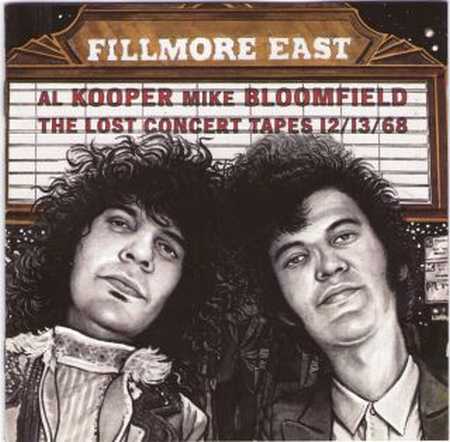 Recorded live at Fillmore East. Mike Bloomfield, guitar, vocals, Al Kooper, organ, piano, vocals, Johnny Winter, guitar, vocals (track 3), Jerry Jemmot, bass, Paul Harris, piano and Johnny Cresci, drums.01 - Introductions02 - One Way Out03 - Bloomfield's Introduction Of Johnny Winter04 - It's My Own Fault (Feat. Johnny Winter)05 - 59Th Street Bridge Song (Feelin' Groovy)06 - (Please) Tell Me Partner07 - That's All Right Mama08 - Together Till The End Of Time09 - Don't Throw Your Love On Me So Strong10 - Season Of The WitchLINK Recorded live at Fillmore East. Mike Bloomfield, guitar, vocals, Al Kooper, organ, piano, vocals, Johnny Winter, guitar, vocals (track 3), Jerry Jemmot, bass, Paul Harris, piano and Johnny Cresci, drums.01 - Introductions02 - One Way Out03 - Bloomfield's Introduction Of Johnny Winter04 - It's My Own Fault (Feat. Johnny Winter)05 - 59Th Street Bridge Song (Feelin' Groovy)06 - (Please) Tell Me Partner07 - That's All Right Mama08 - Together Till The End Of Time09 - Don't Throw Your Love On Me So Strong10 - Season Of The WitchLINK |
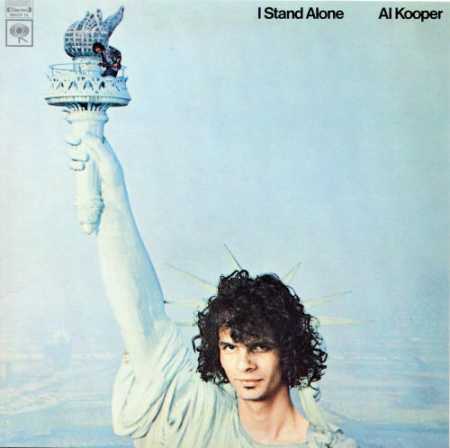 Al Kooper is an American songwriter, record producer and musician, probably best known for organizing the group Blood, Sweat & Tears, though he did not stay with the group long enough to share its popularity. He provided studio support for Bob Dylan when he went electric in 1965, and also brought together guitarists Mike Bloomfield (Paul Butterfield Blues Band) and Stephen Stills (Buffalo Springfield, CSNY) to record the Super Session album. Kooper played on hundreds of records, including those by The Rolling Stones, B. B. King, The Who, The Jimi Hendrix Experience, Alice Cooper, and Cream. After moving to Atlanta in 1972, he discovered the band Lynyrd Skynyrd, and produced and performed on their first three albums, including the single "Sweet Home Alabama" and "Free Bird". Kooper also wrote the score for the TV series Crime Story and the film The Landlord and has also written music for several made-for-television movies. He was also the musical force behind many of the children series "Banana Splits" pop tunes, including "You're the Lovin' End." I Stand Alone is the title of Al Kooper's 1968 début album, issued on Columbia Records, recorded after his collaboration with Michael Bloomfield and Stephen Stills, Super Session. An eclectic mix of country, soul, blues and rock with a dose of psychedelics mixed throughout, it is a continuation of Super Session in its mix of disparate covers from the likes of Bill Monroe, Harry Nilsson and Traffic and originals running the gamut of feelings.01 - Overture02 - I Stand Alone03 - Camille04 - One05 - Coloured Rain06 - Soft Landing On The Moon07 - I Can Love A Woman08 - Blue Moon Of Kentucky09 - Too Old10 - Right Now For You11 - Hey Western Union Man12 - Song And Dance For The Unborn Frightened ChildLINK Al Kooper is an American songwriter, record producer and musician, probably best known for organizing the group Blood, Sweat & Tears, though he did not stay with the group long enough to share its popularity. He provided studio support for Bob Dylan when he went electric in 1965, and also brought together guitarists Mike Bloomfield (Paul Butterfield Blues Band) and Stephen Stills (Buffalo Springfield, CSNY) to record the Super Session album. Kooper played on hundreds of records, including those by The Rolling Stones, B. B. King, The Who, The Jimi Hendrix Experience, Alice Cooper, and Cream. After moving to Atlanta in 1972, he discovered the band Lynyrd Skynyrd, and produced and performed on their first three albums, including the single "Sweet Home Alabama" and "Free Bird". Kooper also wrote the score for the TV series Crime Story and the film The Landlord and has also written music for several made-for-television movies. He was also the musical force behind many of the children series "Banana Splits" pop tunes, including "You're the Lovin' End." I Stand Alone is the title of Al Kooper's 1968 début album, issued on Columbia Records, recorded after his collaboration with Michael Bloomfield and Stephen Stills, Super Session. An eclectic mix of country, soul, blues and rock with a dose of psychedelics mixed throughout, it is a continuation of Super Session in its mix of disparate covers from the likes of Bill Monroe, Harry Nilsson and Traffic and originals running the gamut of feelings.01 - Overture02 - I Stand Alone03 - Camille04 - One05 - Coloured Rain06 - Soft Landing On The Moon07 - I Can Love A Woman08 - Blue Moon Of Kentucky09 - Too Old10 - Right Now For You11 - Hey Western Union Man12 - Song And Dance For The Unborn Frightened ChildLINK |
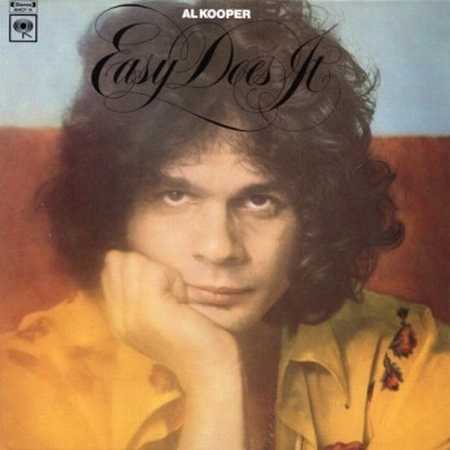
Easy Does It was the third solo album by New York City-based singer-songwriter Al Kooper, recorded and released in 1970 for Columbia Records. A double album, Easy Does It featured Kooper on an expanded number of instruments, including sitar (used to effect on the country-tinged "Sad, Sad Sunshine"), vibes and electronic effects. While mostly backed by Bretheren rhythm section Stu Woods and Rick Marotta, Kooper also utilized groups in Nashville and Los Angeles to record the tracks for the album. Two tracks were also featured on the soundtrack to the counter-culture film The Landlord, "Brand New Day" and "Love Theme from The Landlord".01 - Brand New Day02 - I Got A Woman03 - Country Road04 - I Bought You The Shoes05 - Easy Does It06 - Buckskin Boy07 - Love Theme From The Landlord08 - Sad, Sad Sunshine09 - Let The Duchess No10 - She Gets Me Where I Live11 - A Rose And A Baby Ruth12 - Baby Please Don't Go13 - God Sheds His Grace On TheeLINK |
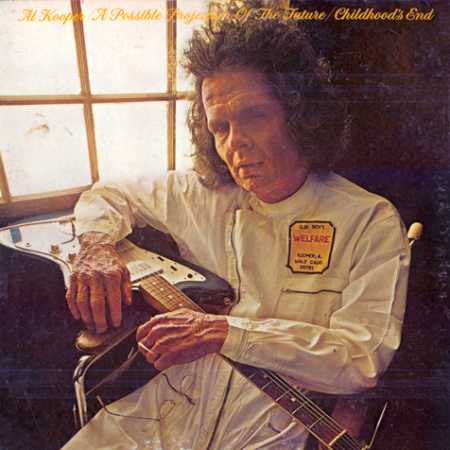 A Possible Projection of the Future / Childhood's End is Al Kooper's fifth album, recorded for and released by Columbia Records in 1972. Begun with a vague storyline that failed to survive beyond the two title tracks, the album was recorded in London, England at George Martin's AIR Studios with one outtake from New York City (You're A Woman). Six original tracks were surrounded were covers by Bob Dylan ("The Man in Me", which Kooper had originally produced), Smokey Robinson ("Swept For You Baby") and even Jimmy Cliff ("Please Tell Me Why"). The album cover showed Kooper as an eighty-year-old man, bespectacled and clutching a Fender Jaguar guitar.01 - Possible Projection Of The Future02 - The Man In Me03 - Fly On04 - Please Tell Me Why05 - The Monkey Time06 - Let Your Love Shine07 - Swept For You Baby08 - Bended Knees09 - Love Trap10 - Childhood's EndLINK A Possible Projection of the Future / Childhood's End is Al Kooper's fifth album, recorded for and released by Columbia Records in 1972. Begun with a vague storyline that failed to survive beyond the two title tracks, the album was recorded in London, England at George Martin's AIR Studios with one outtake from New York City (You're A Woman). Six original tracks were surrounded were covers by Bob Dylan ("The Man in Me", which Kooper had originally produced), Smokey Robinson ("Swept For You Baby") and even Jimmy Cliff ("Please Tell Me Why"). The album cover showed Kooper as an eighty-year-old man, bespectacled and clutching a Fender Jaguar guitar.01 - Possible Projection Of The Future02 - The Man In Me03 - Fly On04 - Please Tell Me Why05 - The Monkey Time06 - Let Your Love Shine07 - Swept For You Baby08 - Bended Knees09 - Love Trap10 - Childhood's EndLINK |
« 1 2 ... 18 19 20 21 22 ... 50 51 » |
|
Calendar
| « December 2025 » |
| Su |
Mo |
Tu |
We |
Th |
Fr |
Sa |
| | 1 | 2 | 3 | 4 | 5 | 6 | | 7 | 8 | 9 | 10 | 11 | 12 | 13 | | 14 | 15 | 16 | 17 | 18 | 19 | 20 | | 21 | 22 | 23 | 24 | 25 | 26 | 27 | | 28 | 29 | 30 | 31 |
Statistics
Total online: 1 Guests: 1 Users: 0
|






















